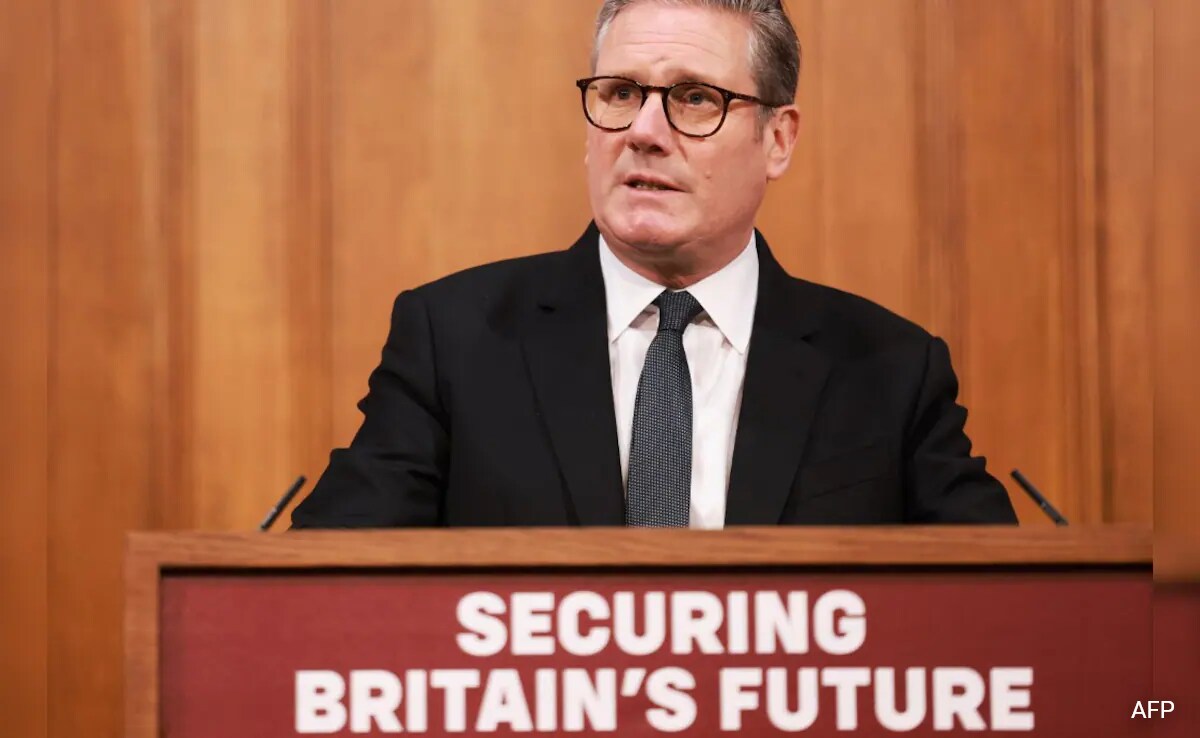How New U.K. Immigration Rules Affect Indians: The Impact of English-Language Requirements Revealed

UK Prime Minister Keir Starmer has unveiled a sweeping overhaul of the country's immigration system, aiming to significantly reduce net migration.
Citizenship
The new plans, outlined in an 82-page white paper, include a "contributions-based" citizenship model, where migrants will have to live in the UK for 10 years before applying for citizenship, up from the current five years.
This modification will feature exemptions for people who make substantial contributions to the economy or society, enabling them to expedite their path to permanent residency status. Authorities have stated that these exceptions will apply to "high-skilled" and "high-contributing" individuals such as nurses, physicians, engineers, and experts in artificial intelligence.
The administration forecasts that these alterations might decrease the population inflow by approximately 100,000 individuals annually. An administrative representative mentioned that the decline in numbers could potentially be more significant, especially if the authorities opt to implement further measures aimed at curbing migration. Presently, immigrants must reside in the UK for half a decade before qualifying for indefinite leave to remain, also known as settled status for those hailing from the European Union. This allows them to subsequently seek British citizenship, generally one year post-establishment.
Dr. Madeleine Sumption, who directs the Migration Observatory at the University of Oxford, thinks that extending the residency requirement won’t substantially affect overall migration numbers. Instead, she predicts this change will primarily increase visa fees and “make it tougher for immigrants to establish permanent residence,” according to Sky News reports.
English Language
The new rules will introduce tougher English language requirements for visa routes. Adult dependents who come with arriving workers or students will need to show basic English skills to get visas. The government said this will help people integrate and find employment.
“If you wish to reside in the UK, it’s advisable to know how to speak English,” Mr. Starmer stated in a tweet on X.
Dr. Sumption additionally mentioned that such language prerequisites “could potentially influence the quantity of visas approved,” since over fifty percent of skilled worker visas were issued to family members during the last couple of years. He further noted, however, that there’s insufficient information about how many of those individuals would have successfully completed a language assessment, making it difficult to quantify this effect accurately.
Care Sector
The government intends to halt international hiring of caregivers, with a phase-out period set for completion by 2028. This policy outlined in the White Paper encompasses all UK visa types; however, it particularly affects the Health and Social Care visa, which predominantly sees applications from individuals originating from India and other South Asian countries.
Students
Students on overseas visas will see the duration of the post-study Graduate Route visa shortened from two years to 18 months. After graduation, international students can remain and work in Britain for up to 18 months instead of the current period of two years. This change is expected to primarily affect Chinese and Indian students, who make up a significant portion of those obtaining such visas.
The government said it would explore introducing a levy on higher education providers' income from tuition fees from international students. The National Indian Students and Alumni Union (NISAU) UK, flagged concerns regarding its impact on Indian students as they are the largest users of the Graduate Route with an aim of acquiring international work experience at the conclusion of their degrees, per PTI.
Mr Starmer emphasised the need for control over the UK's borders, stating, "We will take back control of our borders", he also said, "Without the tough new rules, the UK risks becoming an island of strangers." The UK's immigration landscape has seen record numbers, with 906,000 immigrants entering the country in fiscal year 2023 and 728,000 in 2024, per the Guardian.
Mr Starmer's government faces pressure to tackle both legal and illegal migration amid the surge of the right-wing Reform Party in polls.
Higher Overseas Worker Cost
The government has also added in the policy document that they would introduce a 32% increase in 'immigration skills charge' if employers choose to take someone via a skilled visa or similar route.
Currently, the cost of immigration skills charge is 1,000 pounds per worker for a year, for a large company and 364 pounds per worker for a small company.
Asylum Seekers
The government announced plans to propose new laws aimed at restricting asylum seekers from utilizing Article 8 of the European Convention on Human Rights, which safeguards the right to family life. This move intends to reduce the number of cases deemed “exceptional.” Additionally, according to Reuters, more changes to the current asylum process will be unveiled later this year.
The Shadow Home Secretary, Chris Philp, criticised Labour's handling of immigration, stating that Mr Starmer has "overseen the worst ever start to a year for illegal immigrants crossing the channel" and that "the idea that Starmer is tough on immigration is a joke."
Post a Comment for "How New U.K. Immigration Rules Affect Indians: The Impact of English-Language Requirements Revealed"
Post a Comment